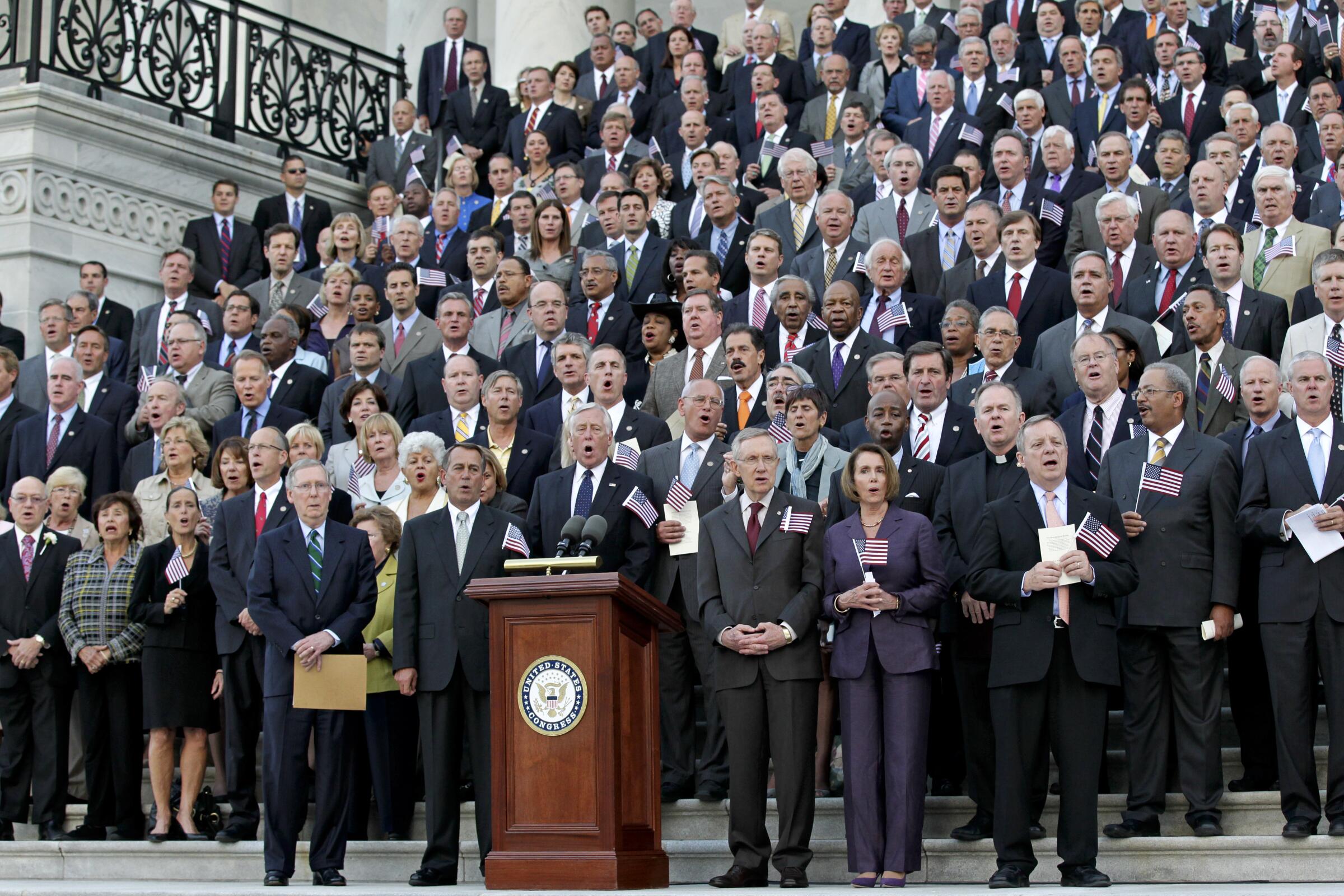Get the L.A. Times Politics newsletter
Deeply reported insights into legislation, politics and policy from Sacramento, Washington and beyond. In your inbox twice per week.
You may occasionally receive promotional content from the Los Angeles Times.

Pete Buttigieg was in his Harvard dorm room. Joni Ernst was planning her toddler’s birthday party in their new home in Red Oak, Iowa. Asa Hutchinson was scheduled to board a commercial flight to Washington, D.C. — and ended up on a military jet instead.
Through different vantage points, they saw the same indelible images: the collapse of the World Trade Center towers, the smoldering Pentagon, the crater of wreckage in Shanksville, Pa.
They, like much of the nation, can easily summon their memories of Sept. 11, 2001, a collective freeze frame of the moment that seemed to transform everything.
After a presidential impeachment and a fiercely contested presidential election that was ultimately decided by the Supreme Court in a 5-4 ruling, the terrorist attacks offered a flash of national unity. The bipartisan cooperation was fleeting.
But in other ways, the impact of 9/11 has endured for decades, including the lasting influence on politicians who are today at the highest reaches of American power.
For some, that day changed their careers entirely, like that of Tom Cole of Oklahoma, who was soon launched into a new, unplanned chapter of public service. The attacks set first-year Rep. Adam B. Schiff on a course that, two decades later, made him one of the most visible Democrats in Congress. Lessons learned in the aftermath of Sept. 11 still resonate with officials navigating our current crises of the COVID-19 pandemic, civic unrest and withdrawal from Afghanistan.
On the 20th anniversary of 9/11, eight politicians shared their reflections on how the cataclysm of Sept. 11 shaped their own lives and guided their approach to politics.
Schiff was at the start of his congressional career when Congress was threatened on 9/11. Nearly 20 years later, he has witnessed the Capitol be imperiled again.
Cole, now an Oklahoma congressman, had a bird’s-eye view of the chaos in Washington after the Sept. 11 attacks. The experience redirected his career trajectory.
For Buttigieg, who was a college sophomore at Harvard on Sept. 11, 2001, the attacks were a perspective-rattling event for his entire generation — millennials whose post-Cold War lives had been largely untouched by war.
For Ellison, the first Muslim elected to Congress and now Minnesota’s attorney general, the aftermath of Sept. 11 was not all feel-good flag waving and national unity. The attacks also set off a wave of Islamophobia.
Sept. 11 set Ernst on a path of intensifying commitment to the military, catapulting her from a part-time reserve post to a full-time overseas deployment during the Iraq war.
Demings (D-Fla.), a policewoman-turned-politician, witnessed the calamity of Sept. 11 as few other politicians did: from the perspective of law enforcement.
Supervisor Hilda Solis took comfort in Congress’ impulse to come together after the attacks of Sept. 11, but lamented that not everyone in the country got to share in that unifying spirit.
Sept. 11 was a curveball that reshaped Hutchinson’s mission as a Bush administration official. Twenty years later, he sees parallels in how the COVID-19 pandemic jolted his work as governor.
Get the L.A. Times Politics newsletter
Deeply reported insights into legislation, politics and policy from Sacramento, Washington and beyond. In your inbox twice per week.
You may occasionally receive promotional content from the Los Angeles Times.